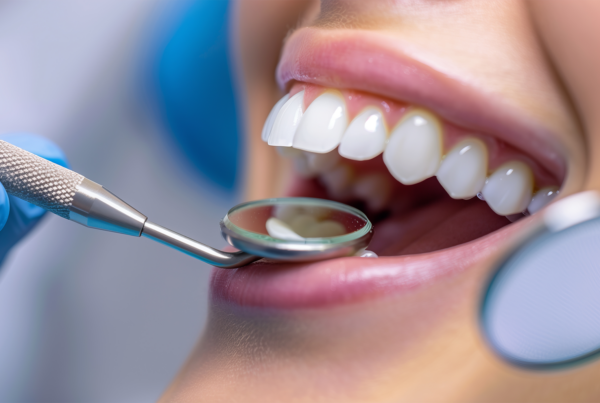A healthy smile doesn’t happen by accident. The people who seem to have “naturally” strong, cavity-free teeth often follow consistent habits that protect their oral health behind the scenes. Preventative dental care isn’t complicated, but it does require attention and a bit of teamwork between you and your dental team. When done right, it keeps small problems from turning into big, expensive ones and helps you enjoy a confident smile for decades.
At Encino Dental Studio, we believe prevention is smarter than reaction. Rather than waiting for pain, decay, or gum problems to appear, we focus on simple, strategic steps that keep your mouth in its best shape. Whether it’s your regular dental check-up or the way you brush at home, every small habit adds up.
 Why preventative dental care matters more than you think
Why preventative dental care matters more than you think
Preventative dental care does far more than keep your teeth white and your breath fresh. It’s about maintaining the structures that support your teeth, preserving your natural enamel, and reducing your risk for future procedures like fillings, crowns, or even extractions.
When dental care is reactive, problems often get caught late. A small cavity that could have been easily reversed with fluoride can turn into a root canal if ignored. Gum irritation can turn into advanced periodontal disease that affects your bone structure. Even issues like clenching, grinding, or misalignment can silently cause damage over time.
By staying proactive, you give your dental team the chance to catch these issues early, when they’re easier and cheaper to treat. And you give yourself peace of mind.
How often should I have a teeth cleaning / dental check-up to prevent problems?
This is one of the most common questions patients ask, and the answer depends a bit on your individual needs. For most people, a dental cleaning and check-up every six months is ideal. These regular visits allow your dentist to remove plaque and tartar that brushing and flossing can’t reach and to spot early signs of trouble before they escalate.
If you’re prone to gum disease, have a lot of restorations, or are undergoing certain treatments, you may need to come in more frequently. For example, people with a history of periodontal issues may benefit from cleanings every three to four months to keep bacteria under control. Pregnant patients, smokers, and those with medical conditions like diabetes may also need closer monitoring.
During a check-up, your dentist will:
- Examine your teeth and gums for cavities, early signs of decay, and gum inflammation
- Check your bite and look for wear that could indicate grinding or clenching
- Evaluate previous fillings, crowns, and other restorations to ensure they’re holding up
- Clean away tartar that builds up even with excellent brushing habits
- Offer personalized advice on improving your at-home care
Regular appointments aren’t just a box to tick. They’re a key part of protecting your oral health for life.
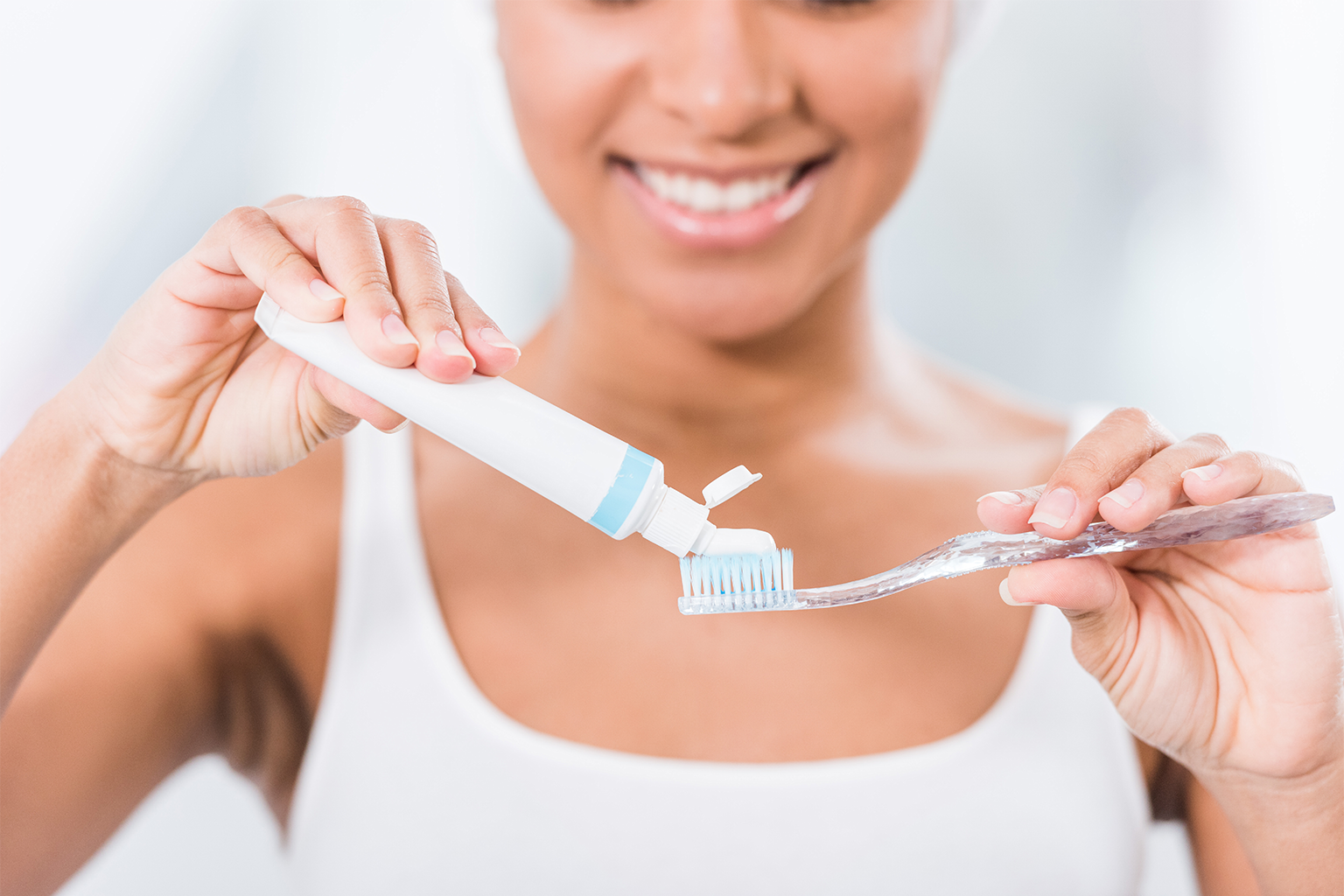 What daily habits actually prevent cavities and gum disease?
What daily habits actually prevent cavities and gum disease?
The truth is, most dental problems are preventable with consistent, effective daily care. But there’s a difference between brushing twice a day quickly and brushing effectively. Here’s what actually makes a difference:
1. Brushing with the right technique
Brush your teeth twice a day for at least two minutes each time. Use a soft-bristled toothbrush and fluoride toothpaste. Hold the brush at a 45-degree angle to your gumline and use gentle, circular motions. Brushing too aggressively can wear down enamel and irritate gums, while brushing too quickly can leave plaque behind.
2. Flossing daily
Flossing removes plaque and food particles between teeth where your toothbrush can’t reach. It’s one of the most powerful ways to prevent gum disease. If traditional floss is difficult to use, floss picks or water flossers can be effective alternatives.
3. Rinsing with mouthwash
An antibacterial or fluoride mouthwash can provide an extra layer of protection by reducing bacteria and strengthening enamel. It’s not a substitute for brushing and flossing but a helpful addition to your routine.
4. Watching your diet
What you eat plays a huge role in your dental health. Sugary snacks and drinks feed harmful bacteria that create acids, which attack enamel and lead to cavities. Sticky foods like caramel or dried fruit cling to teeth, increasing your risk further. Instead, focus on a balanced diet with plenty of water, crunchy vegetables, and dairy products that support enamel health.
5. Staying hydrated
Saliva is your mouth’s natural defense against decay. It helps wash away food particles and neutralize acids. Drinking water throughout the day, especially after meals, helps maintain this natural balance.
6. Avoiding tobacco
Smoking and chewing tobacco increase your risk of gum disease, tooth loss, oral cancer, and staining. Quitting dramatically improves your oral and overall health.
7. Using dental products recommended by your dentist
Not all products are created equal. Your dentist can recommend toothpastes, floss, or rinses that fit your specific needs, whether that’s extra fluoride, sensitivity protection, or something else.
These daily habits, combined with regular professional care, form the foundation of preventative dental care.
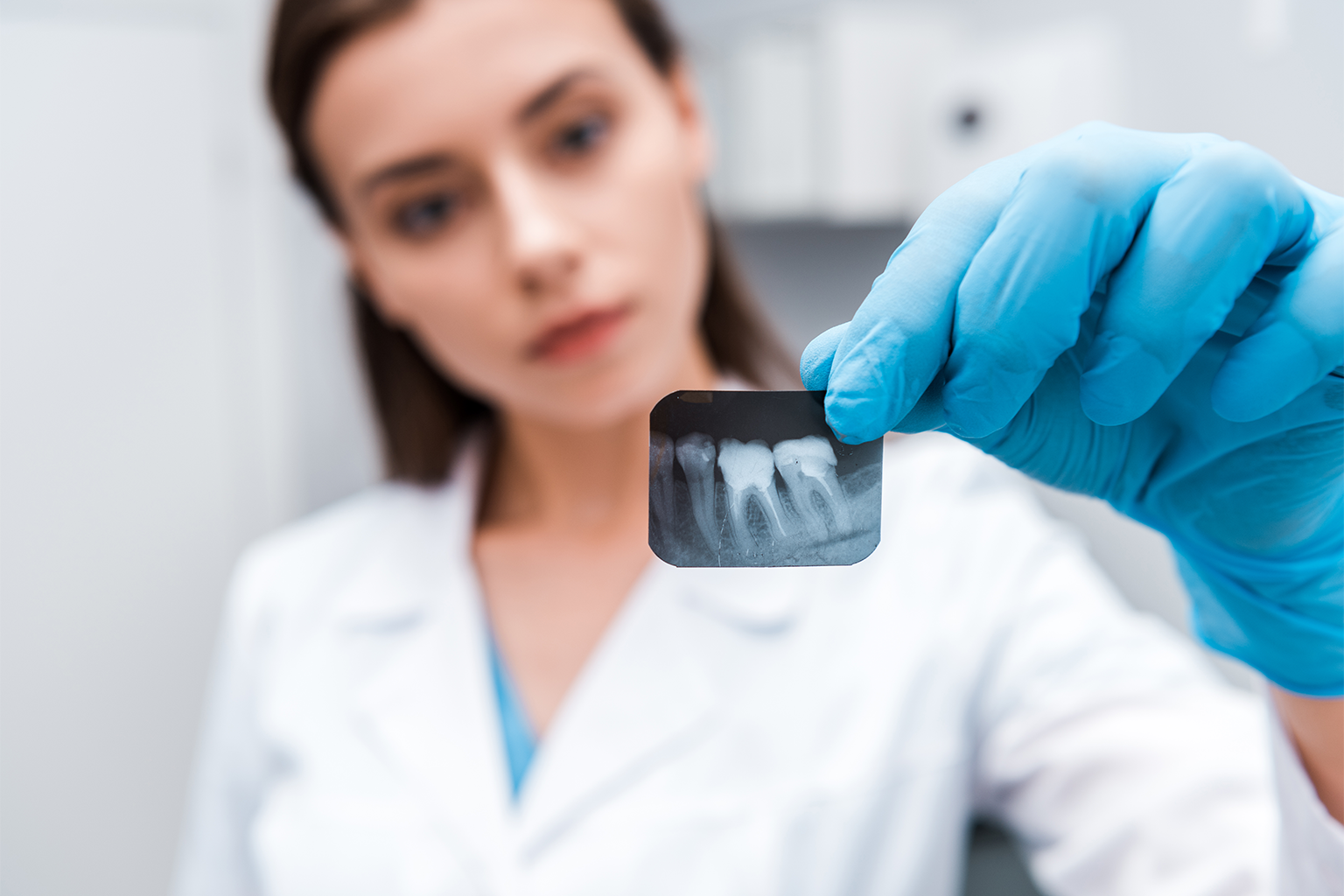 Are dental X-rays safe and needed for preventive care?
Are dental X-rays safe and needed for preventive care?
Dental X-rays are a valuable tool for spotting problems that can’t be seen with the naked eye. They help detect cavities between teeth, bone loss, impacted teeth, infections, and developmental issues early on. For preventative care, X-rays are often taken once a year for adults with healthy mouths, though this schedule may vary depending on your oral health history.
Modern dental X-rays are extremely safe. Digital X-ray technology uses very low levels of radiation, far less than what you’re exposed to during a short airplane flight. Protective aprons and collars are used to minimize exposure even further.
For children, X-rays are especially important for monitoring the development of their teeth and jaw. For adults, they help catch problems like cavities under fillings, bone loss from gum disease, or early signs of infection before symptoms appear.
Skipping X-rays might feel like a way to save time, but it often leads to problems being discovered later, when treatment is more invasive and expensive. Your dentist will always tailor the frequency to your individual needs and only recommend X-rays when they’re truly necessary.
The bigger picture: prevention protects more than just your teeth
Preventative dental care has ripple effects beyond your mouth. Research has repeatedly shown connections between oral health and overall health. Gum disease, for example, has been linked to heart disease, diabetes, respiratory infections, and complications during pregnancy. By keeping your gums healthy, you’re also protecting your body.
There’s also a financial advantage. Preventing a cavity through good hygiene and regular cleanings is far less expensive than treating it once it requires a filling or a crown. Preventing gum disease can save you from future deep cleanings, surgeries, or tooth replacements. Prevention is not only better for your health, it’s smarter for your wallet.
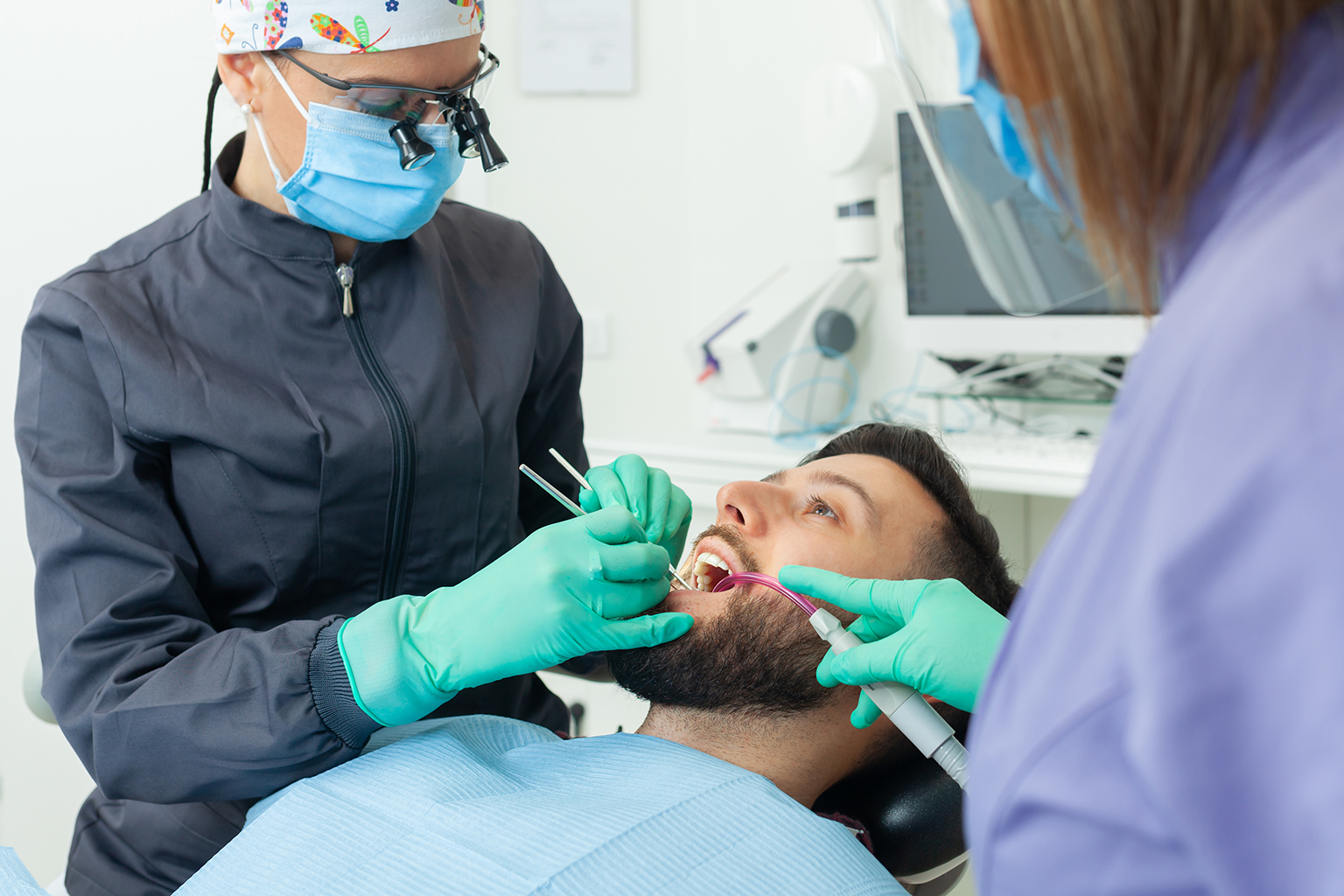 Why personalized prevention matters
Why personalized prevention matters
No two mouths are exactly alike. Your oral health depends on your genetics, diet, lifestyle, and history. A personalized preventative care plan takes these factors into account. For example:
- Someone with a family history of gum disease may benefit from more frequent cleanings and specialized mouthwash.
- A patient with sensitive teeth might need a specific toothpaste and a softer brushing approach.
- People who frequently snack throughout the day may need additional fluoride exposure to protect their enamel.
- Teens with braces have different cleaning needs than adults with implants.
At Encino Dental Studio, we take time to get to know you and your oral health goals. We create prevention plans that fit your real life rather than giving generic advice. Whether you’re trying to maintain your excellent check-up streak or reverse some damage from years of neglect, there’s always a smart, personalized path forward.
Prevention isn’t about perfection, it’s about consistency
Many people assume preventative care means never having dental problems, but that’s not realistic. What matters is catching issues early and staying consistent with the habits that work. Even if it’s been years since your last cleaning, it’s never too late to start. Small changes today can have a big impact over time.
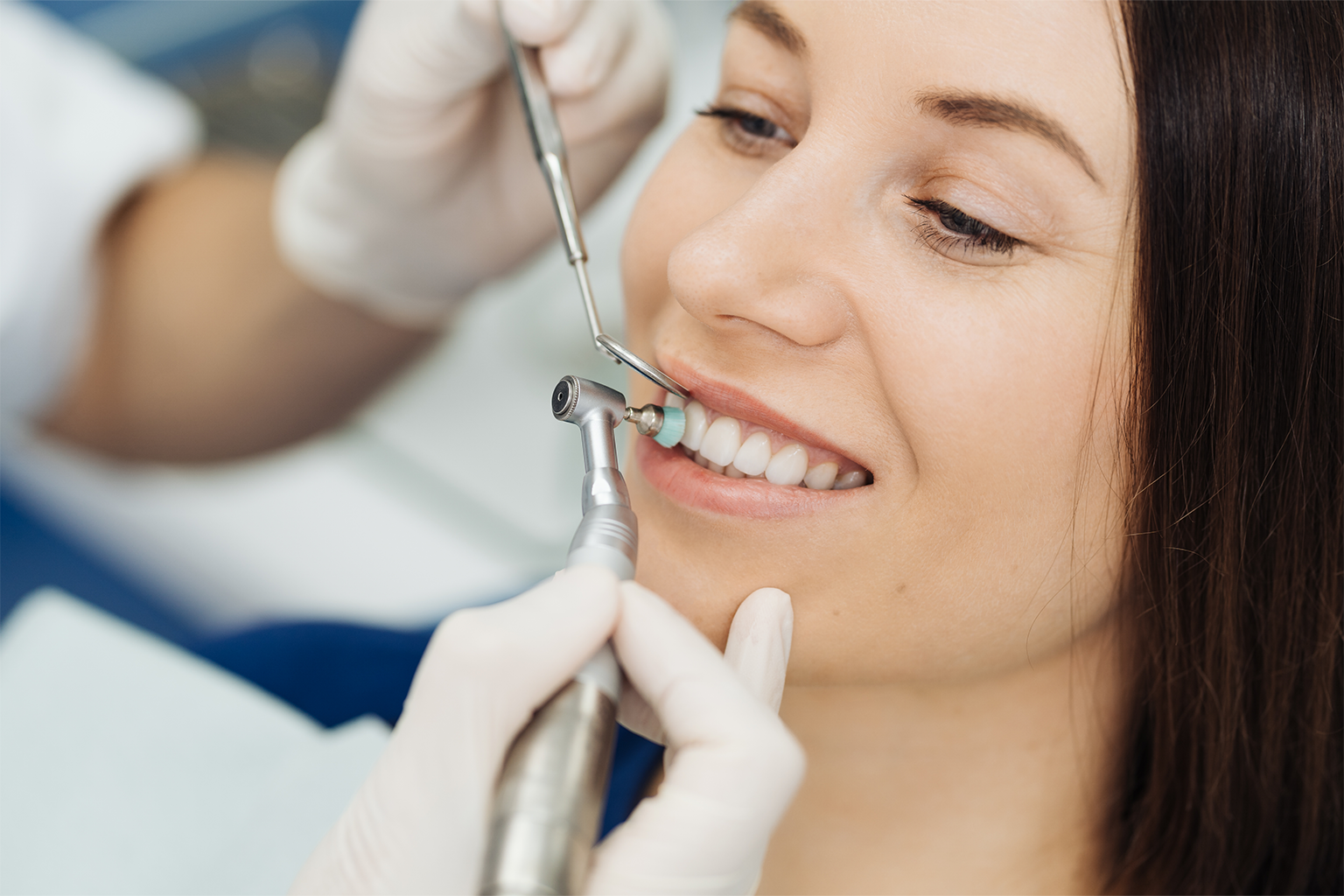 Schedule your preventative dental visit today
Schedule your preventative dental visit today
Your healthiest smile starts with smart daily habits and regular professional care. Don’t wait until something hurts to see the dentist. At Encino Dental Studio, our team is ready to help you build a strong foundation for lifelong oral health.



